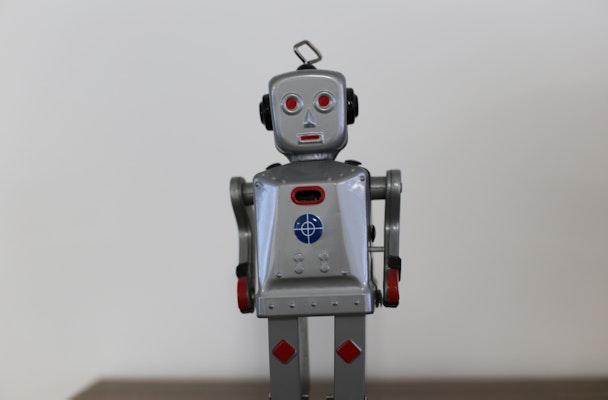Robots are coming- will they be a help or a hindrance?
The robots are coming for us. Or are they?

There are more people in work now in the UK than at any time since records began. Vacancies continue to rise, and for employers it’s becoming increasingly difficult to find the talent they need to compete in their sector. Recruitment marketers and resourcing professionals are already facing difficult challenges trying to place the right individual in the right work placement. Quality candidates are difficult to attract and recruit with all the various devices, people and places they use to make decisions.
Despite this recruitment phenomenon, the robots are coming. At a recent BIMA event, the panel of practitioners explored the future of robots and AI and the consequent impact of their presence within the digital industry. The overarching theme was how artificial intelligence would impact models of business; recruitment, hierarchy and culture.
Help or a hindrance?
Let’s start with what we mean by robots and artificial intelligence, as my first reaction is to think of a metal, living thing that acts and thinks like a human. It’s the ‘brain’ of the robot, the artificial intelligence that will ultimately affect the running of business as we know it. For example, Cortana and Siri, the increasingly helpful bots that live in your phones, are forms of artificial intelligence.
Artificial intelligence is also starting to bridge some gaps in UX design and website creation. With technology like The Grid harnessing its power to automatically shape a custom website unique to you, you can’t help but look on with both intrigue and mild concern. Experts have mixed opinions about how the seemingly inevitable robotisation of jobs will impact the workplace and employment levels.
A case for concern?
Data in the US suggests that technology already destroys more jobs than it creates. Experts predict robots will take over 30 percent of our jobs by 2025.
Oxford University researchers have ranked the occupations most in danger of being replaced by computers and robots, including telemarketers, insurance underwriters and watch repairers.
Voices as esteemed as Steven Hawking and Jaron Lanier have voiced concerns about underestimating risk and economic inequality.
The case for confidence
In 2014 Pew Research reported that 52 percent of experts in AI and robotics were optimistic about the future and believed there would still be enough jobs in the next few decades.
Microsoft’s Jonathan Grudin said: “Technology will continue to disrupt jobs, but more jobs seem likely to be created.” Some reports say that we will not feel the impact anytime soon as fully automating jobs takes time and businesses need to make organisational changes. In fact they argue that it could increase employment and productivity. For example, the expansion of ATM machines in banks actually increased transactions and employment, as it gave cashiers time to do tasks where human interaction is important, such as customer service.
A balanced view?
History suggests that whenever we feel an oncoming shift in industry there is a natural resistance and concern. Fears of technology driving unemployment go back to the industrial revolution. The difference now is that it will impact ‘white-collar’ jobs in occupations such as travel agents, data analysts and paralegals. Further, based on principles such as Moore’s law, it may well happen a lot quicker than before.
However, while artificial intelligence is improving rapidly and getting sophisticated at mimicking (even bettering) human intelligence, it will always be difficult to be human, if you are not human. Traits such as empathy, creativity and being able to read body language will always be hard to program.
So what does the future hold?
Recruitment: This next era could present a need for jobs that don’t exist yet; combining disciplines and cultures in order to deliver what businesses require. And who knows you could actually use artificial intelligence to predictively model and succession plan what those jobs actually are. To develop talent before demand outweighs supply.
Marketing: As a marketer we may find ourselves in an interesting position where we have to think as B2B2C (business to bot to consumer) communicators. With a focus on how we engage with bots to ensure that when a consumer gives an audio request, your brand is found and preferred by bots. It is estimated that in five years time at least 50 percent of all searches are going to be conducted through either images or speech. It may well be that where you have SEO specialists; the future prefers BEO specialists.
In many ways it is the combination of inevitable, unknown and speculation that makes this period of innovation so exciting. We shall just have to wait and see.
Jason Bell is digital planning director at ORM.
Content by The Drum Network member:

ORM
ORM’s brand purpose and values are brought to life through our work and our people. Our purpose is to help our clients achieve digital freedom. For brands to adapt...
Find out more
